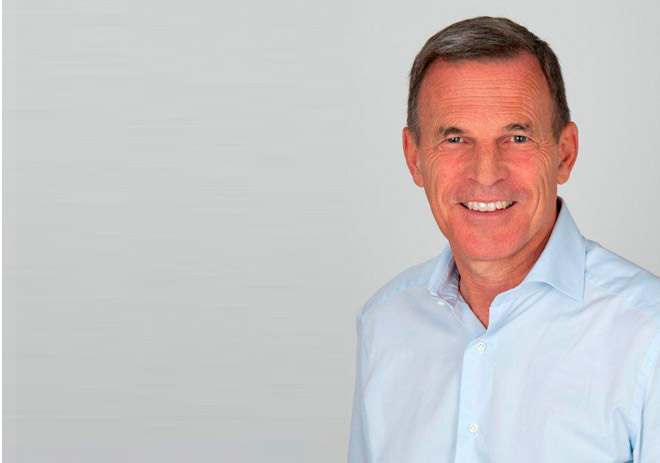
About the Interviewee
NORMAN WALKER is an advisor to TPG Capital for portfolio company organisational and leadership issues. He leads his own firm Ardfern AG, chairs the Vita Group, and is an advisor to the Board Advisory Partnership. Norman previously served on the Board of Alcon Inc. From 1998-2003. He was a member of the Group Executive Committee of Novartis responsible for HR, and has held senior HR positions at Kraft Foods, Grand Met and Ford Motor Company.
About the Interviewer
ANDROS PAYNE is the founder and CEO of Humatica. He was previously a Partner at Mercer Management Consulting and a high-tech entrepreneur. Andros holds an MBA from Stanford Graduate School of Business and two engineering degrees.
Humatica: What do you look for in a winning CEO?
Walker: We look for CEOs who have demonstrated success, who have delivered and created value. The “how” of that leadership is also very important.
“Effective leaders will align, engage and galvanise their organisations.”
The quality of leadership is extremely important and we place a lot of emphasis on getting strong leaders in key positions. Furthermore, you need a very strong team around the leader to create and drive success. We are looking for the CEO’s who have the confidence to hire really strong executives in their team, as they recognise the obvious benefit – a strong team makes their job much easier. It is always a surprise to me to meet CEOs who don’t hire strong subordinates.
Humatica: What is the perfect CEO?
Walker: For me it is the CEO who is striving for excellence rather than perfection. What you really come down to is decisiveness. The executive who is striving for perfection is actually indecisive. The decisive leader will say we have got enough information – and if we haven’t we will tweak and course correct as events unfold.
Humatica: What are the main differences to leading in the corporate world?
Walker: Many of the CEO qualities are the same as in the corporate world, amongst others, the drive to achieve results and a deep understanding of your business.
A really important characteristic, which is a challenge and a rare attribute, is the ability to work both strategically and have a deep grasp of operations at the same time.
There are three other main areas of difference to the corporate world for the CEO. The first is resources. The quality of the people may not be to the level of those you have been used to, and some processes and practices will likely to be broken or non-existent. Many corporate CEOs find the lack of a large infrastructure around them to be a real challenge.
Secondly there is the speed at which you operate, with decision making being the prime example. This is often the attraction for CEOs coming into PE.
The last area is politics. Internal politics are inherent in large organisations. Happily we don’t have time for this. There is an alignment between the sponsor, the leadership team and the organisation, because we are all interested in the same goal of building the success of the company.
Humatica: What are the characteristics of the best private equity backed CEOs you’ve worked with?
Walker: Great leaders are highly creative and action orientated. They are able to look at a situation, develop a differentiated approach with their teams and then go out and implement. In the private equity world, if you have a great idea, you have a very small board that can quickly support you. And thus, you are able to implement very fast.
“We are not looking for people who want to be on the front page of Time Magazine, or have big egos.”
Then there is willingness to take personal risk. People running PE businesses have their own money at risk. This “owner attitude” is a significant difference from a corporate employee.
Humatica: What does a new portfolio company CEO have to keep top-of-mind when they start?
Walker: Firstly, as the CEO you are expected to deliver. There is no running for cover because there isn’t any.
Secondly you do indeed have a boss – private equity investors are just that. They are your board and as a CEO you have to engage them through the course of an investment.
Private equity needs the assurance that a newly backed business is off to a flying start. In a five-year investment period, if you miss the first year, you’re way behind and a CEO who misses this point is making a fatal mistake. You need to realise that time is critical.
Humatica: What are best-practice ways to interact with the investor board?
Walker: It’s a very regular conversation. What you want is an open, transparent relationship built on trust. The key is the openness to having those conversations and seeing the sponsor as a supporter as opposed to somebody who is trying to get in your way. Sometimes the sponsor will need to be educated on your business which may test the CEOs patience.
That said, I think the sponsor has to be respected for the knowledge and contribution that they can make. It’s a matter of finding the right balance, which requires give and take on both sides. The bigger issue is when there are two or three sponsors and they’re not aligned – then the CEO has a much bigger challenge.
Humatica: How should a new CEO quickly understand the organisation and people?
Walker: The most effective way of doing that is to get out there – that is what good leaders do. They cover their businesses and meet as many people, both internally and externally. They may choose to draw on external support to help them analyse the organisation and assess people. A diagnostic of organisation and/or people will provide the platform for the new CEO.

The private equity (PE) playbook is evolving. Rapid buy-and-sell cycles are giving way to continuation vehicles and longer hold periods, demanding a new approach to…
Read more
The private equity landscape continues to evolve, influenced by macroeconomic shifts and emerging trends. The ecosystem is becoming increasingly polarized, with firms gravitating towards either…
Read more
Why is it that most mergers, reorganizations, and downsizings fail to generate their anticipated full value? The main reason is that a lack of effective…
Read moreErhalten Sie jeden Monat Neuigkeiten und wertvolle Perspektiven zu Themen der organisatorischen Effektivität